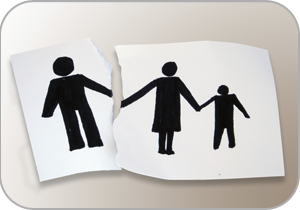The National Council on Alcoholism and Drug Dependence (NCADD) promotes alcohol awareness every April. Fittingly, during a spring month of renewal and rebirth, we're prompted to reassess our relationship to alcohol, as well as its role in our lives and communities.
What is Alcohol Awareness Month?
Since its establishment in 1987, the NCADD's Alcohol Awareness Month has functioned to increase public awareness and understanding with the hope of lessening the stigma associated with alcoholism, which can prevent people who are in need of help from getting it. This month, for the 27th Anniversary of Alcohol Awareness Month, NCADD has chosen the theme "Help for Today. Hope For Tomorrow."
Why it Matters
 Alcohol Awareness Month shines a light on the widespread impact that alcohol-use disorders have on our society. If one person is an alcoholic, odds are that several other people in his or her life are also ill-affected by the disease in a variety of ways. Twenty-five percent of U.S. children have been exposed to alcohol-use disorders in their families.
Alcohol Awareness Month shines a light on the widespread impact that alcohol-use disorders have on our society. If one person is an alcoholic, odds are that several other people in his or her life are also ill-affected by the disease in a variety of ways. Twenty-five percent of U.S. children have been exposed to alcohol-use disorders in their families.
Alcoholism and alcohol abuse don't just cost people emotionally; they have serious economic affects, too. The alcohol abuse-related costs incurred in the U.S. are estimated by the Centers for Disease Control and Prevention to be $223.5 billion. The costs are a consequence of decreases in workplace productivity, health care expenses for problems resulting from excessive drinking, law enforcement and other criminal justice expenses associated with excessive alcohol consumption, and car accident-related costs from impaired driving.
Who is At Risk?
It's no accident that Alcohol Awareness Month happens at the start of prom and graduation season. Teens are particularly at risk of abusing alcohol, which is a common tool for self-medication among kids who suffer from depression and/or anxiety, or who lack a good support system. Ongoing family or school-related stress, poor coping skills, social problems, and family members with drug or alcohol problems also increase the likelihood that kids will abuse alcohol. Even though some groups of young people may be more at risk than others, alcohol abuse is such a widespread and pervasive issue among teens that all adolescents can benefit from prevention activities, alcohol-related education, positive role models, and clear communication from parents.
What Events Take Place This Month?
There will be a multitude of activities on local, state, and national levels that will focus on education and alcohol abuse prevention. Check out the NCADD website to learn more about your local NCADD affiliates and what they have planned. Schools, churches, colleges, and other community organizations will sponsor an assortment of events for all ages.
